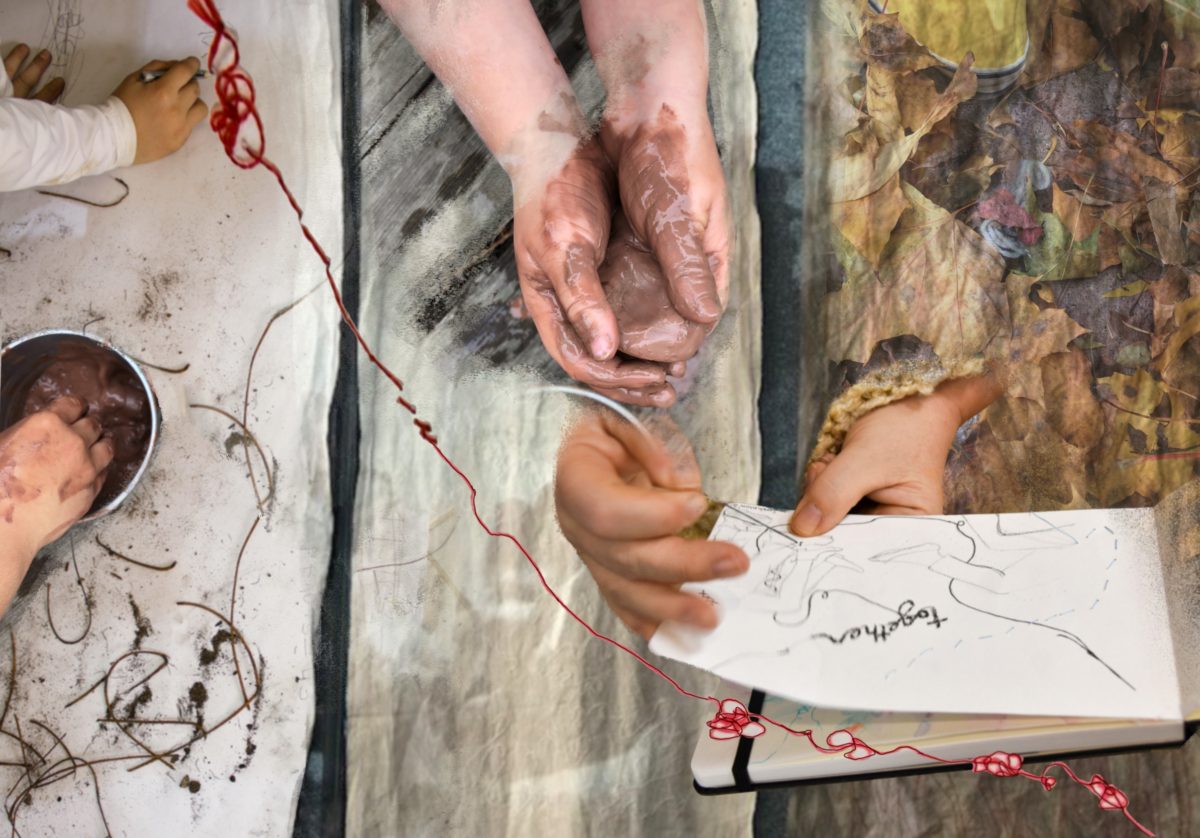We are pleased to release the second issue of the Pedagogist Network of Ontario Magazine. This magazine is a space for encountering ideas and experiences that relate to pedagogists’ educational practices, and serves as a living archive of work that takes place at the intersection of pedagogy and early childhood education.
Issue 2 includes four distinct, yet akin, articles that engage with three of PNO’s threading concepts: curriculum making, becoming a pedagogist, and situated relations. The articles not only touch upon each concept but also activate them from and towards different locations. Through these activations, the contributing authors urge early childhood education to endure more, commit to more and enunciate more than what the field currently breathes, actualizes and speaks.
Curriculum making is a central idea for Cristina Delgado Vintimilla and Veronica Pacini-Ketchabaw. In their article, they narrate the creation of pedagogical documentation alongside the composition of curriculum. For them, curriculum making and pedagogical documentation work in tandem, feeding one another. To bring to life this intimate connection the authors attend to the metaphor of stitching. They stitch with pedagogists; they insert inventive and responsive processes as a form of curriculum making. Through this slow stitching they also encourage readers to attend to the temporal aspects of pedagogical documentation – not only do we work retrospectively, they say, we are also projecting towards what is not yet known.
Delgado Vintimilla and Pacini-Ketchabaw also put to work the concept of becoming a pedagogist through documentation they created following a PNO gathering in 2020. Similarly, post-secondary institution pedagogists Paolina Camuti-Cull and Olga Rossovska, in an interview by Cristina Delgado Vintimilla and Nicole Land, provide a thoughtful narration of the vulnerabilities and (dis)comforts of reconfiguring their relations as post-secondary pedagogists with students, educators and colleagues. Camuti-Cull and Rossovska share how, in inhabiting an in-between and always-in-question becoming, they problematize the postsecondary institution’s neoliberal inheritances. They describe how their roles as pedagogists are opening up generative possibilities for beginning to notice, reimagine, and recreate practicum and classrooms conditions and experiences. In questioning the pedagogical purposes and intents of practicum, they propose possibilities to set into motion alternative ways of relating and coming together in early childhood education.
How a pedagogist asks questions of pedagogy, lives pedagogical questions, and performs pedagogical acts also come through in Nicole Land’s Sweating the Fact(s) of my Body (+ Mermaids) as a Pedagogist. Land’s provocative, intimate, rigorous and poetic piece threads pedagogy with the concept of situated relations. Situated within a body, Land “sweats and muscles” pedagogical questions and, in turn, makes her body a space for interrogation, provocation, and invention. She lays bare what it might mean to think pedagogically from within a body; what it might do to ask pedagogical questions from an unwell body; what it might actualize when addressing a body in a pedagogical way. We believe that Land wants us to read this essay pedagogically – she is not looking for a sympathetic reader (although it might be impossible not to ache for the suffering and distress that her unwell body brings), rather at every turn of her prose she seeks and demands a pedagogical engagement.
Entering through a different axis, Fikile Nxumalo’s podcast also activates the concept of situated relations. Situating herself within multiple geographies of racialization, she interrogates how Blackness is activated through pedagogical and curricular events – for instance, through descriptors such as ‘from preschool to the prison pipeline’ used to refer to young Black children’s educational trajectory. From this space, Fikile thinks with feminist Black theories to make early childhood education accountable for reproducing anti-Blackness, and for its seduction with Canadian multiculturalism. Yet, Fikile not only challenges early childhood education, but she also offers a new pedagogical lexicon to think differently about what might be possible through environmental early education.
The articles in this issue are kindred, yet distinct offerings, and ask what must be endured to remain in the midst of pedagogical engagement. We hope readers not only linger with the individual visual, aural, poetic, and narrative forms, but read them in relation with one another, and as an activation of work that is reconfiguring the intersections of early childhood education and pedagogy.
